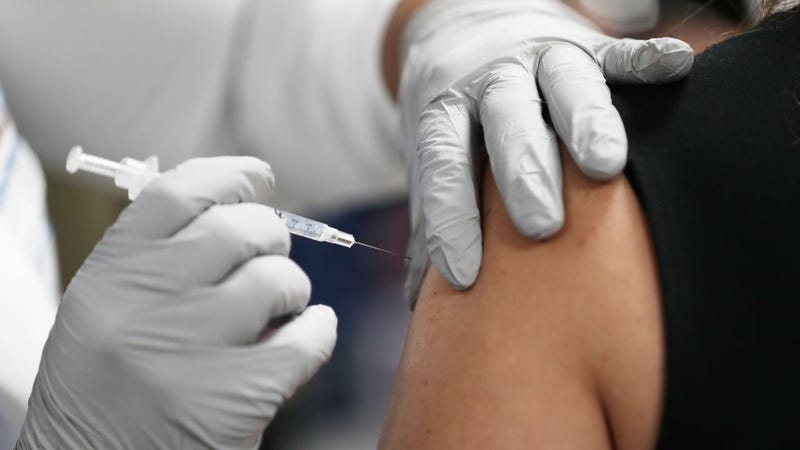
Five Republican-led states -- Arkansas, Florida, Iowa, Kansas and Tennessee -- have extended unemployment benefits to people who have lost their jobs because of COVID-19 vaccine mandates, according to The Washington Post.
Those states have made exceptions for people who have not submitted the vaccination requirements that many companies are enforcing. Workers who quit their jobs or were fired with cause, including defying company policy, are often ineligible for unemployment benefits.
Wyoming, Wisconsin, and Missouri are all reportedly considering a similar extension of benefits.
President Joe Biden's administration has been pressing vaccination rules for private companies, especially after the recent rise of COVID-19 cases across the country due to the omicron variant.
However, business leaders and industry groups have fought against vaccination mandates because the "companies would shoulder much of the costs."
Critics of the states extending unemployment benefits say they "are incentivizing people to skip shots that public health experts say offer the best line of defense against the coronavirus."
Observers pointed out that it wasn't long ago that two-dozen Republican states restricted unemployment benefits to incentivize people to return to work and help the labor shortages.
“These governors, who are using the unemployment insurance system in a moment of political theater to make a statement about the vaccine mandate, are the same folks who turned off unemployment benefits early for millions of workers over the summer,” Rebecca Dixon, the executive director of the left-leaning National Employment Law Project, said.
On the other hand, Kansas Senate President Ty Materson, R, has said that the rule changes won't lead to an increase in unemployment claims, and therefore draining the state's unemployment insurance fund.
“To have a hit on the fund, you have to have an employer that is denying the medical and individual rights of the employee, and firing them for it,” Masterson said. “Simple solution: Don’t do that.”
Kansas Governor Laura Kelly, D, agreed with the predominantly Republican legislature to exempt employees from vaccination mandates due to medical or religious reasons.
"The law creates a process through which the government reviews claims from those who leave jobs because of a vaccine mandate and can provide for retroactive payment of benefits. The Kansas law imposes fees of up to $50,000 for large employers or $10,000 for smaller ones."
According to the CDC, only about 55% of the state was fully vaccinated as of Dec. 7.
The Kansas Chamber of Commerce said that they could expect to pay $5.6 billion from their unemployment insurance trust fund, and objected to the benefits language in a special session before the legislature.
Matt Bruenig of the left-leaning People’s Policy Project said that the recent Republican support of unemployment benefits is based on the "deservingness" of applicants.
“It has to do with who you imagine getting the benefits... what is the image that’s put in your head,” Bruenig said.
"[Conservative lawmakers] in normal times think, ‘Oh well the people on these benefits are losers or aren’t deserving,’” Bruenig said. “If you can get their mind oriented towards a population they don’t think that about, they’ll come around to it and say, ‘Oh, this makes sense.’”



